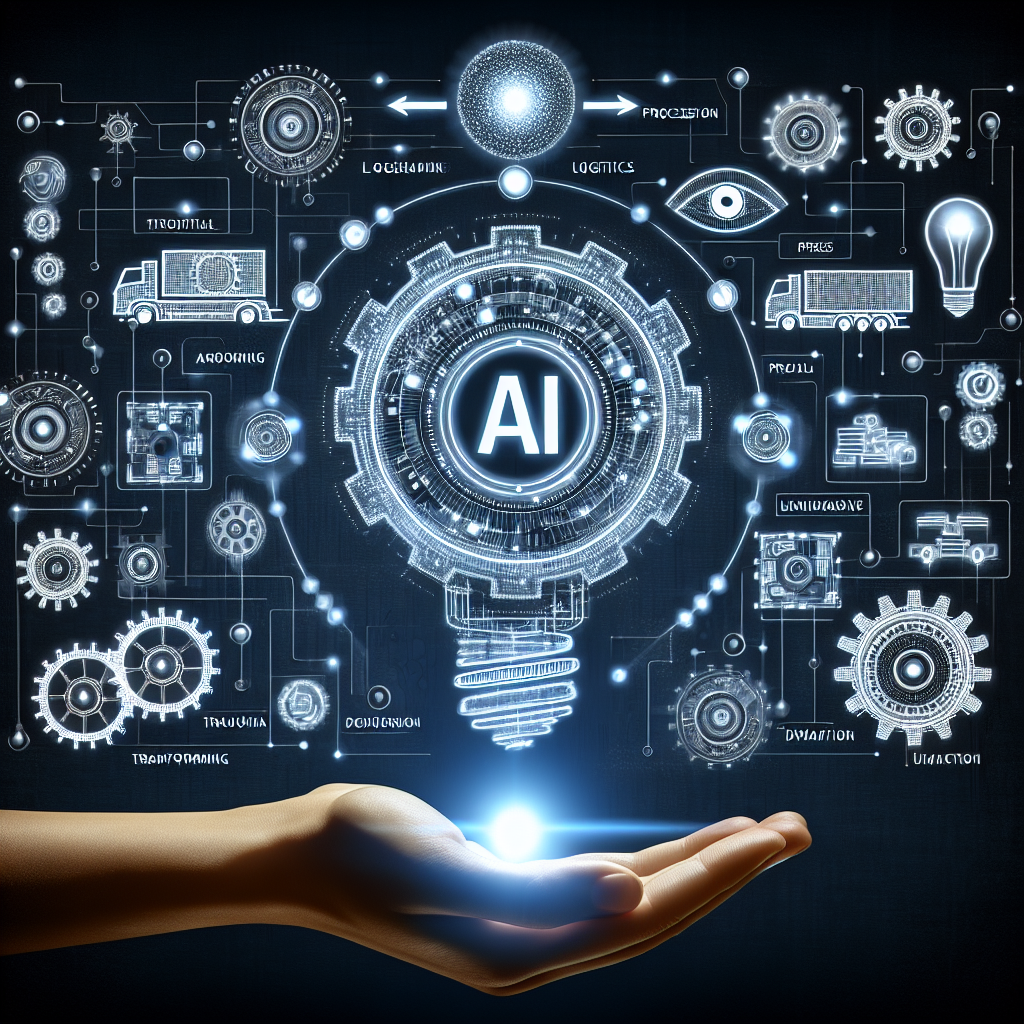The Role of AI Outsourcing in Digital Transformation
In today’s fast-paced, technology-driven world, businesses are constantly looking for ways to streamline their operations and stay ahead of the competition. One of the most effective ways to do this is through digital transformation, which involves the integration of technology into all aspects of a business to improve efficiency, productivity, and customer experience. Artificial Intelligence (AI) is a key component of digital transformation, as it can automate processes, analyze data, and make predictions to drive informed decision-making.
AI outsourcing has become increasingly popular among businesses looking to leverage the power of AI without the need for in-house expertise. By partnering with a third-party provider, businesses can access cutting-edge AI technology and expertise without the high costs and risks associated with developing and maintaining AI capabilities internally. In this article, we will explore the role of AI outsourcing in digital transformation and how it can help businesses achieve their goals.
Benefits of AI Outsourcing in Digital Transformation
There are several key benefits of AI outsourcing in digital transformation:
1. Access to Expertise: AI outsourcing allows businesses to tap into the expertise of AI specialists who have the knowledge and experience to develop and implement AI solutions effectively. These specialists can help businesses identify the right AI technologies for their needs, customize solutions to meet specific requirements, and provide ongoing support and maintenance.
2. Cost-Effectiveness: Developing and maintaining AI capabilities in-house can be costly and time-consuming. By outsourcing AI services, businesses can access cutting-edge AI technology without the need to invest in expensive infrastructure, tools, and training. This can help businesses save money and free up resources to focus on core business activities.
3. Scalability: AI outsourcing providers have the capacity to scale AI solutions quickly and efficiently to meet changing business needs. This flexibility is particularly important for businesses that experience fluctuations in demand or require specialized AI capabilities for short-term projects.
4. Faster Time-to-Market: Outsourcing AI services can help businesses accelerate the development and deployment of AI solutions, enabling them to bring new products and services to market faster. This can give businesses a competitive edge by allowing them to capitalize on emerging opportunities and respond quickly to changing market conditions.
5. Risk Mitigation: Developing AI capabilities in-house can be risky, as it requires significant investment in technology, talent, and infrastructure. By outsourcing AI services, businesses can reduce the risks associated with developing and maintaining AI capabilities internally, such as technology obsolescence, talent shortages, and security vulnerabilities.
Use Cases of AI Outsourcing in Digital Transformation
AI outsourcing can be applied to a wide range of use cases in digital transformation, including:
1. Customer Service: AI-powered chatbots and virtual assistants can automate customer service interactions, such as answering queries, providing information, and processing transactions. AI outsourcing providers can help businesses develop and deploy chatbots that are personalized, intelligent, and responsive to customer needs.
2. Data Analytics: AI algorithms can analyze large volumes of data to uncover insights, trends, and patterns that can inform decision-making and drive business growth. AI outsourcing providers can help businesses implement advanced analytics solutions that enable them to extract value from their data and gain a competitive advantage.
3. Predictive Maintenance: AI algorithms can analyze equipment data to predict when maintenance is needed, prevent breakdowns, and optimize asset performance. AI outsourcing providers can help businesses implement predictive maintenance solutions that reduce downtime, improve productivity, and extend the lifespan of equipment.
4. Fraud Detection: AI algorithms can detect and prevent fraudulent activities, such as unauthorized transactions, identity theft, and phishing scams. AI outsourcing providers can help businesses implement fraud detection solutions that protect their assets, reputation, and customer trust.
5. Personalization: AI algorithms can analyze customer data to personalize marketing messages, recommendations, and offers based on individual preferences and behaviors. AI outsourcing providers can help businesses implement personalization solutions that enhance customer engagement, loyalty, and retention.
FAQs
Q: What are the key considerations when choosing an AI outsourcing provider for digital transformation?
A: When choosing an AI outsourcing provider, businesses should consider factors such as expertise, experience, capabilities, reputation, pricing, and scalability. It is important to select a provider that has a proven track record of delivering high-quality AI solutions that align with business objectives and requirements.
Q: How can businesses ensure the security and privacy of their data when outsourcing AI services?
A: Businesses should work with AI outsourcing providers that have robust security measures in place to protect sensitive data from unauthorized access, breaches, and cyber threats. It is important to establish clear data protection policies, protocols, and agreements to ensure the security and privacy of data throughout the outsourcing process.
Q: How can businesses measure the ROI of AI outsourcing in digital transformation?
A: Businesses can measure the ROI of AI outsourcing by tracking key performance indicators, such as cost savings, revenue growth, productivity gains, customer satisfaction, and competitive advantage. It is important to establish clear goals, metrics, and benchmarks to evaluate the impact of AI outsourcing on business outcomes.
Q: What are the challenges of AI outsourcing in digital transformation?
A: Some of the challenges of AI outsourcing in digital transformation include integration with existing systems, alignment with business processes, cultural resistance to change, talent shortages, and regulatory compliance. It is important for businesses to address these challenges proactively to maximize the benefits of AI outsourcing.
In conclusion, AI outsourcing plays a crucial role in digital transformation by enabling businesses to access cutting-edge AI technology, expertise, and capabilities without the need for in-house investment. By partnering with a third-party provider, businesses can leverage the power of AI to streamline operations, drive innovation, and enhance customer experience. With the right approach, AI outsourcing can help businesses achieve their digital transformation goals and stay ahead of the competition in today’s fast-paced, technology-driven world.

